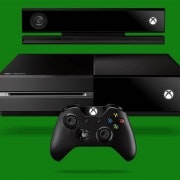Broadening Microsoft's gamification plans
Microsoft recently announced the successor to the Xbox 360 – the Xbox One. The event to announce the new console was heavily focused on the console’s enhanced media capabilities. The hardware revisions, coupled with some interesting patents raised by Microsoft, demonstrate the organisation’s intentions for using game mechanics in contexts that extend far beyond just the games developed for the console. One intriguing possibility is that Microsoft uses the gamification technology developed for influencing consumer media behaviour to enhance the capabilities of enterprise applications, such as Microsoft Dynamics.
Since its launch for the Xbox 360, Kinect has experienced strong success, with Microsoft reporting in February 2013 that sales had reached 24 million units. With Xbox One, Microsoft has evolved the hands-up technology and made the Kinect an integral component of the console’s user interface. Kinect is so richly integrated that the sensor must be active in order for the Xbox One to be powered up. This “always-on approach” will give Microsoft the ability to more closely monitor the activities of the user via the Kinect camera. For example, the sensor now has the capability to more accurately monitor user engagement levels with a specific product or experience, gathering intelligence on when a user may become disengaged and leave the room. Another example that has more commercial appeal could be in the technology being used to gather data on the commercials that people watch.
Well versed in the effective use of gamification
When the Xbox 360 was released in 2005, it included a system of virtual rewards called Xbox 360 Achievements. Achievements incentivise players to attain rewards by achieving something specific within a game. Every game released on the Xbox 360 offers Achievements, with the maximum number of Achievements a game offers being a uniform number set by Microsoft. Achievements contribute to a user’s cumulative “GamerScore,” which acts as a means of quantifying a gamer’s status, which is broadcast to their social network. Xbox Achievements have been very successful for Microsoft, influencing both buying patterns and user behaviours in-game, encouraging them to partake in tasks that they may otherwise not have been motivated to undertake.
Microsoft recently applied for a patent that suggests that the company is exploring ways in which Microsoft can extend its achievement platform beyond just games and into other media such as television programs and movies. GetGlue, a non-Microsoft app, provides a good example of how Microsoft may approach this. GetGlue is an application that allows users to track entertainment habits, empowering them to “check in” when they read a book, or watch a movie or TV show, and encourages people to share such activities socially. GetGlue uses game mechanics to good effect in encouraging and rewarding certain behaviours. However, a negative of the application is that user input is currently entirely manual.
The patent filed by Microsoft suggests that the Xbox One will adopt a similar strategy to that of GetGlue, using game mechanics to track, encourage, and reward people for watching a certain TV show, listening to a piece of music, or recommending a film to a friend. The patent, titled “Awards and achievements across TV ecosystem,” states: “Television viewing tends to be a passive experience for a viewer, without many opportunities for the viewer to engage or have interactive experiences with the presented content. To increase interactive viewing and encourage a user to watch one or more particular items of video content, awards and achievements may be tied to those items of video content. Producers, distributors, and advertisers of the video content may set viewing goals and award a viewer who has reached the goals.” The differentiator for Microsoft over a solution such as GetGlue is in how the console will be able to track and reward these behaviors automatically, as it does currently with the achievement system used for games. Coupled with the Kinect sensor, Microsoft may even choose to evolve this further and reward the sustained engagement of people when watching a TV show or film.
Usage beyond Xbox One – incorporation into enterprise applications
As with any gamification initiative, it will not be universally accepted, but Microsoft is aware of this as a result of experiences with the existing achievement system. To some, the application of game mechanics to such activities will have no influence on their behaviours or motivations.
Microsoft must be careful in how Achievements may be tied to advertising content. While still only rumours, rewarding people for watching commercials is looking like something that may happen, but this may be seen as a means of manipulating people purely for commercial gain and may increase levels of disengagement with the system. Those that do embrace Microsoft’s extended use of Achievements will provide the company with a wealth of rich information and quality data that could prove to be very valuable. It will also further enhance Microsoft’s ability to push content recommendations to users that are more specific to their viewing habits.
While the specific patent is focused on consumer media-consumption behaviour, the technology along with the insights from Achievements could be incorporated into Microsoft’s various enterprise applications (e.g., Microsoft Dynamics, Yammer, and Microsoft Commerce Server) for employee-facing or customer-facing purposes. With the ability to natively gamify enterprise applications, Microsoft could gain competitive advantage over competitors such as SugarCRM and Salesforce.com that rely on third-party developers to bolt-on gamification functionality.
Adam Holtby is a research analyst at Ovum.
















